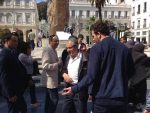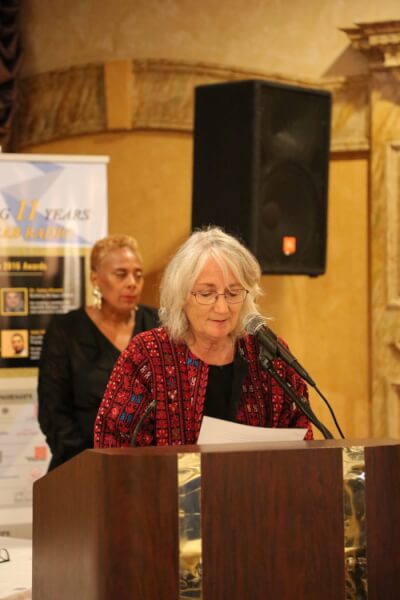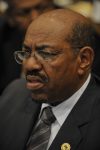Find a Better Way to Pessimism and Cynicism
Algerians are asking how long President Bouteflika will let special interests steal the country’s wealth.
By Abdennour Toumi
For politicians, it’s a mistake to bet on pessimism; however, when leaders become silent and people don’t have anything left to hope for, they turn to cynicism and rumors. As a result, they lose trust in their political leaders who must confront their voters. This is the nature of politics.
Sometimes the whole nation feels disconnected because while the Prince and his entourage might need their support during elections, as soon as the polls close, there’s nothing left but to walk away until the next election.
So Algeria’s politics go. Problems continue to grow and the relation between the power and the people deteriorates more and more to the point that a large majority of Algerians are no longer paying any attention to the summer’s political “soap-opera” drama.
With the firing of Premier Abdelmadjid Tebboune in August, this has been the shortest Premier term since the creation of the post in 1979. Former Premier Tebboune dared to challenge the Algerian compradores and their oligarch protectors to initiate public policies regarding the link between politics and money.
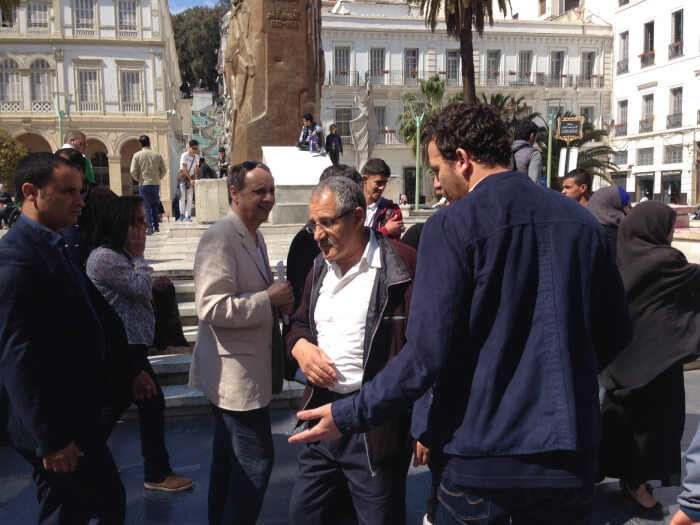
A bold political move that earned him some popularity in the country’s lower social class. But eighty days later after his nomination, he was replaced by Mr. Ouyahia, the President’s Chief of Staff and the RND Party leader, a seasoned veteran experienced in Algeria’s modern politics and system.
Thus a deep political crisis has emerged within the masses, the elite and the regime.
According to Professor Naim Zaidi, a Political Science Professor at Algiers Political institute, the Algerian political system is difficult to analyze due to its complex function resulting from a combination of historical, sociological and cultural factors.
The regime and the oligarchs, however, continue to argue that the country is better off under the leadership of President Abdelaziz Bouteflika, though he has been silent since a minor cerebral attack in 2013.
On the other hand, the out-spoken elite and the opposition are questioning his health and governing aptitude, lately even university professors are demanding early presidential election. Accroding to the Huffignton Post Algeria and Jeune Afrique.
The New Generation Party, led by Sofiane Djellali, an opponent leader, has called for the application of Constitutional Article 102 regarding office tenure.
Last Wednesday a group of young, fed-up opponents and Mr. Djellali’s NGP Party militants walked peacefully down the main street of Algiers, rue Didouche Mourad, wearing white T-shirts with the number “102” printed on the front. According to eye witnesses the police reacted quickly to stop and arrest the protesters.
Hence the number “102” has become a nightmarish number for the President’s clan. “I think one should not focus on the question of clans and the power struggle, since the relation between all the clan members surpasses any logic to untangle the actors… as Professor Zaidi put it.
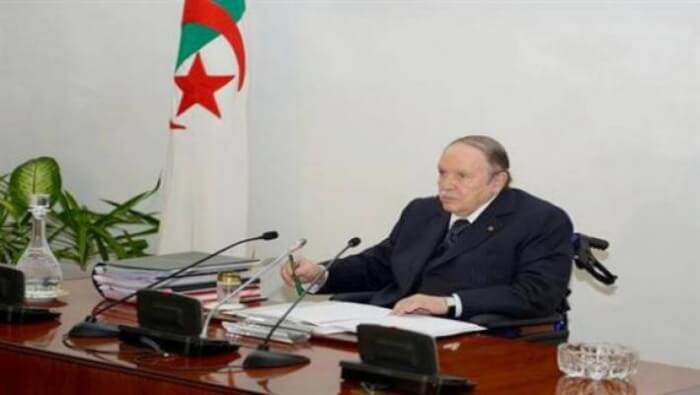
In reference to the Constitution, other voices are timidly asking the Army to intervene. Such a scenario took place in December, 1991, in the aftermath of the landslide victory of the Islamists (FIS) Party. The Army did intervene weeks later, annulled the election outcome and stopped the democratic process in Jan 1992.
But this time the Army has responded with a long op-ed in its monthly publication al-Jeish stating that it respects the Constitutional order not to intervene in politics, but to protect the nation’s boundaries and institutions — a fallacy of “wait and see” how events unfold.
Yet the regime is seriously nervous about the socioeconomic concern despite rhetorical assurance given by the unpopular Labor Union leader that everything is under control. But the street is not so sure about that as the price of daily basic foods and supplies are skyrocketing because of inflation.
The come-back Algerian politics kid, Mr. Ouyahia, seems to be the President’s and his clan’s Chef-du-jour to keep the lid on the pot and not let the stew gets to spicy.
Algerians re-elected Bouteflika for a fourth term in April, 2014, but they still saw no change as his ministers continued to be caught up in corruption scandals and incompetence. The people are asking for relatively small changes that could produce big results in their daily lives.
Even though, the last Parliamentary election showed a worsening relation between the Prince and his people, as only a monirity of the voters showed up at the polls. Algerians are disgusted with these corrupt politicians at every level, commonly known as s’hab a-sh’kara (reminiscent of Northern opportunists known as carpetbaggers, who came to exploit the defeated South after the American Civil War).
In November the voters are headed for the Municipalities and Departmental polls to elect their local leaders.
At large people feel betrayed by a failure of hope that put President Bouteflika in office. This was apparent on many occasions when I spoke with people of different social status and class in Algiers.
On one hand, people are grateful to the President for his national security policy, which has brought safety and well-being to Algerians. On the other hand, one can sense the deepening political morass and social despair; add to that, the early elimination of the national soccer team for qualification to the Russia 18 World Cup.
Some journalists and analysts have gone so far to describe it as worse than the dark Decade of Terror. Then it was the nation’s social cohesion in question; nevertheless, current events impacting the country have gone too far when high public servants and businessmen settle their differences à la House of Cards (season two) style.
This is reality, not fiction, not a sign of a healthy political system, argues another journalist in exile. The people are worried and concerned about the country’s future. What is taking place at the summit of the system leads neither to stability nor security, despite the platforms that President Bouteflika ran on for his preceding terms.
Algerians are asking how long President Bouteflika will let special interests steal the country’s wealth.
In circumstances like these, it is essential for a leader to demonstrate his leadership skills, this is what Human Rights militants and Civil Socitety activists are saying in social media forums. His silence is undermining his ability to lead and govern.
At his cabinet meeting on Wednesday he appeared in a wheelchair where he reminded Algerians to stay united, and the politicians to put the country’s interest above their personal interests and ambitions.
There are so many unanswered questions and unmet needs that continue unaddressed by the President, his advisors and policy makers, the opposition leaders, the media and the elite must strive for a greater unity if they are to respond with real answers to the people’s quest for social justice and put an end to the pessimism and cynicism that prevails.


- The Israeli-Palestinian Conflict: Is the Neither-Peace-nor-Security As-sumption Dominating Again? - June 7, 2021
- Algeria: “I Can See Clearly Now” - August 5, 2019
- Majesty Mohammed VI and General Gaïd Salah Tear Down This Wall! - July 29, 2019













